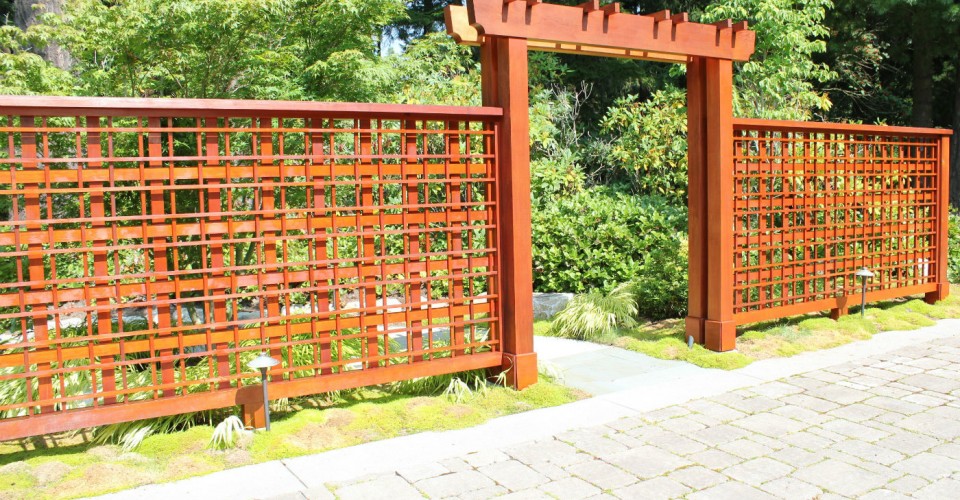Installing, replacing or repairing a fence will have varying costs depending upon the scope of the project, the materials, labor costs and any other work that must be done to complete the project. Before your project starts, you’ll want to carefully assess what your fencing needs are, and discuss any other projects that may need to be done such as gates, changing the landscape, or any structural fixes.
How much does a new fence cost?
Fences are generally priced by linear feet (for example, $5.00 per linear foot). Because fencing materials are offered in a wide range of styles, colors and materials, the cost of a fence varies greatly. Aside from the fencing materials cost, there are other cost factors like gates, locks, post designs, lighting, installation, shipping, delivery, equipment rental, labor and permits.
What type of fence do you need?
Your fencing requirements should dictate the type of materials you need. Is your fence to surround a pool or a garden? Is your fence needed for privacy or is it decorative? Do you need to keep pets and children safe or are you trying to keep deer out of your vegetable garden? Do you want a low-maintenance fence or need a very durable fence? All of these factors will affect the materials you need for your fence and may also affect where you purchase the materials and who installs them. Keep in mind that some zoning codes and restrictions require a fence permit. You’ll want to contact your local department of planning and development and ensure that your fence meets local building and zoning codes.
Typical fencing materials
Most of your budget will be spent on materials so it’s a good idea to price out various types of pickets and posts for your project. Here are some typical fencing materials:
- chain link
- wood
- vinyl
- glass
- metal
There are other decorative details that are sometimes added to fences. Metal details, lights, fence caps, gates, locks (regular and automatic), wheels, and other decorations look great but will add to your costs.
Labor and other cost factors
Once you’ve narrowed down the type of fence style as well as the ideal materials and color, get quotes from several fencing contractors. You’ll want to know how much they charge for labor as well as what the material costs will be and necessary equipment rental. A professional fencing contractor will visit your property personally to inspect the current fence and to assess the scope of work. The quote or bid should detail all aspects of the work and include the overall timeline, costs involved for disposal of old fence, and any other details. Labor is generally about half the cost of the overall fencing project but of course this may vary depending upon the type of work involved with your fence.
Costs for a DIY fence project
If you plan on installing or repairing a fence yourself, your costs may be different. You may not be able to get a wholesale price for fencing materials however, if your fencing needs are simple, you may have a variety of off-the-shelf products available to you. Many hardware and farm supply stores offer all the materials you would need to construct a fence. They may also rent augers or other fence-building equipment. Time and labor will be the most difficult part of the fence building process, as constructing a new fence is usually very labor intensive. If you simply need to fix or repair a fence, doing it yourself shouldn’t take more than a weekend to complete. However, if you need to install a large segment of fencing you may be looking at a very long project. Be honest with your skills, ability and time before you take on a potentially large project.
Top image credit: Seley Painting




